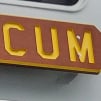Welcome to the Hardcore Husky Forums. Folks who are well-known in Cyberland and not that dumb.
We need a general tweet of the day thread
Comments
-
-
-
Don't forget Ashli Babbitt was shot standing next to two police officers while unarmed and killed. There was no investigation whatsoever conducted and the killer is still free and most likely got a promotion.LebamDawg said: -
-
Hope this satisfies you @GrundleStiltzkin
I posted at home since HH is blocked at work and I have to use my phone -
-
-
-









